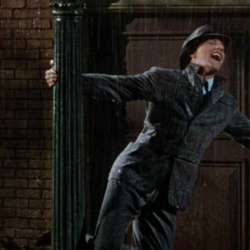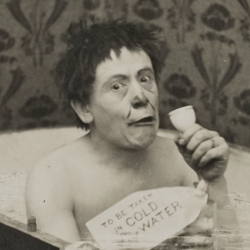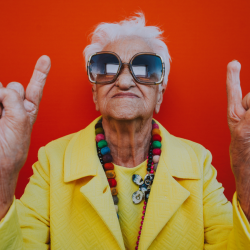You might have heard, being funny is back
Not only has Cannes launched a new humour category, but there’s a spate of new ads that are actually making me laugh. Given the world around us appears to be falling apart, it might feel a bit strange that brands are suddenly trying to get us to giggle. Whether it’s Apple and their belly up gecko, or Magnum’s mantra on deception in relationships, everywhere you look ads are angling for a laugh. On reflection though, maybe it’s not that surprising that we’ve entered our light-relief era.
It might be counter-intuitive, but joking isn’t just something that we only engage in when we’re happy, it’s something that we rely on in tougher times. And as the world darkens, so does our sense of humour. This innate human tendency to soften the blow of reality might explain the recent trend of ‘optimistic nihilism’, the view that ‘nothing matters, so nothing matters’. This paradox is particularly evident in younger generations, who are simultaneously reporting record levels of mental health issues, whilst also taking a less serious approach to life and culture.
We’re now four years on from the start of the pandemic and purpose-led advertising is all but dead. People are increasingly sick of being told what to do, and bored of being patronised by marketing that tells them they’ve ‘got this’. Maybe that’s why brands and content creators are forgoing corny, self-aggrandising platitudes in favour of embracing a darker, weirder (and often more honest) approach.
In the UK, this comedic turn reflects an overall focus shift towards home
The pandemic and issues caused by Ukraine were inherently global, and led to one-size-fits-all approaches from brands. There are signs things are beginning to diverge, and are creating more space for our distinct brand of British humour to come to the fore. There is a significance that advertising is beginning to mirror trends that are born from social: the humour we’re increasingly seeing on TV often echoes a style that is created from TikTok. Yorkshire Tea’s Pack Yer Bags is a great example that combines these two trends, and maybe that’s why it works. Ideas baked in culture are always likely resonate more, and these platforms are incredibly powerful forces in both driving cultural shifts, and in providing a record to advertisers that allows us to understand what is making impact.
You might expect this very modern phenomenon to have a very modern style, but much of these in-vogue comic trends actually have a bit of retro feel. Instead of insincere highlight reels and carefully curated lives, presenting even more carefully curated values, we’re seeing more vignettes of real life, taking inspiration from web 1.0 to be less serious and be more ‘random’ (Funnyjunk, anyone?).
This is one reason we’re more primed for humour now than we have been in recent history, and our ads are heading the same way. Surrealism, anthropomorphism and even good old-fashioned jingles are all having their time in the sun, on both social media and traditional advertising.
Things feel even more cyclical, if we look back to previous tough times
Take advertising that coincided with the post-2008 financial crisis: we saw a lot of slapstick comedy seeking to have a bit more of laugh. Most famously, two price comparison websites launched around that time, leaving certain meerkats and opera singers permanently imprinted in our culture.
All of these spikes are, of course, different examples of a truth that’s been evident since the birth of advertising: people like and remember things that make them laugh. Brands responded to a shift in circumstances and consumer sentiment to show that they cared about society, but there’s only so much seriousness we can take from brands until we want to scream, and consumers are getting attuned to cynical ploys from brands to tug at their heartstrings. Using humour in your advertising isn’t without risk, particularly if your marketing isn’t funny, or you’re a brand who people don’t want to laugh with. Nobody wants to banter with their energy provider if they’re struggling to pay their bills, and nobody wants fried chicken puns in a rejection letter.
To learn a lesson from British comedy, brands should fear being David Brent. Don’t be overfamiliar, don’t overestimate your own status in the community, and don’t act like you’re more worthy than you are. To borrow a phrase, ‘A friend first, a brand second. Probably an entertainer third.’
Featured image: The Office (2001) / BBC































